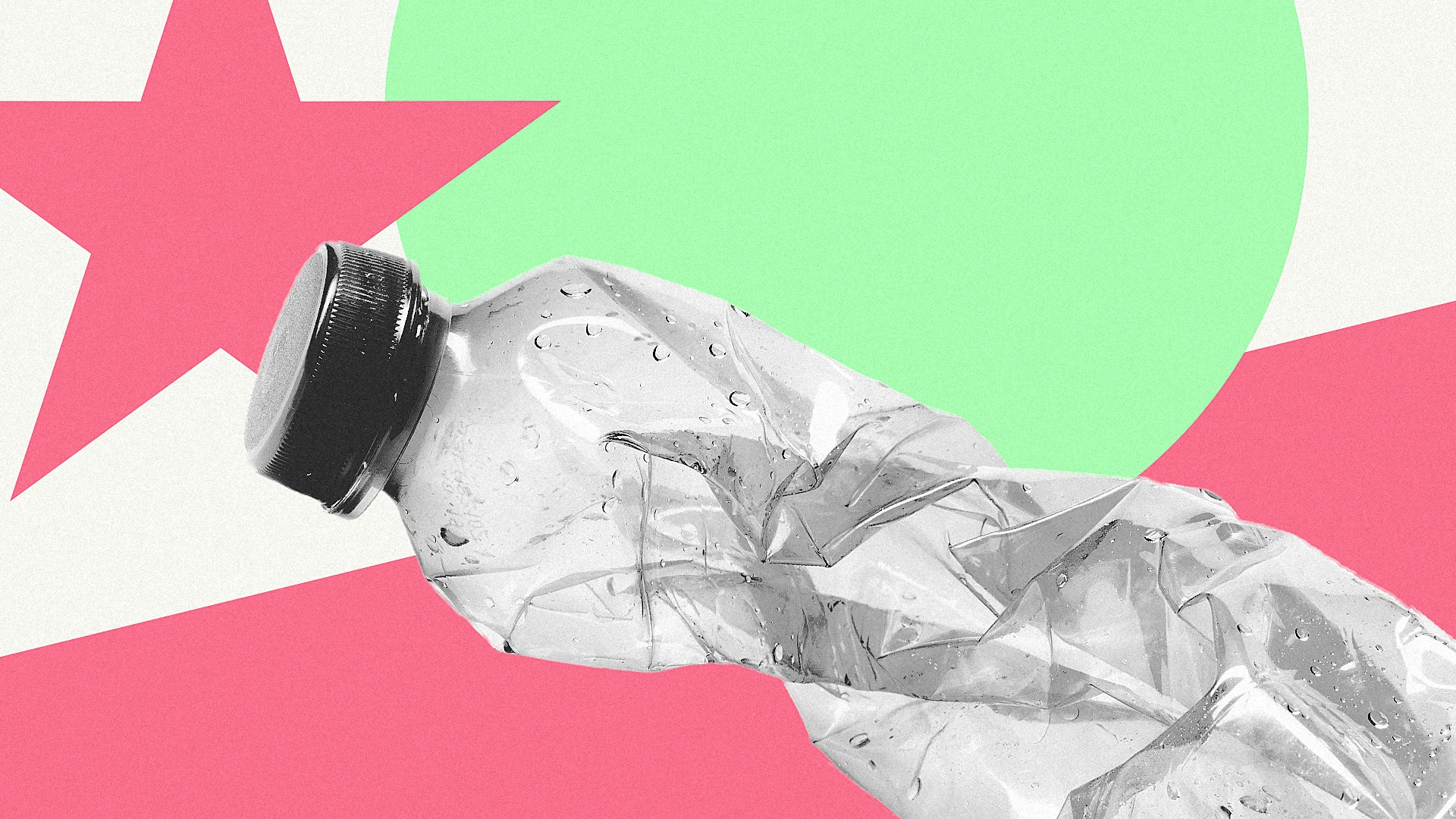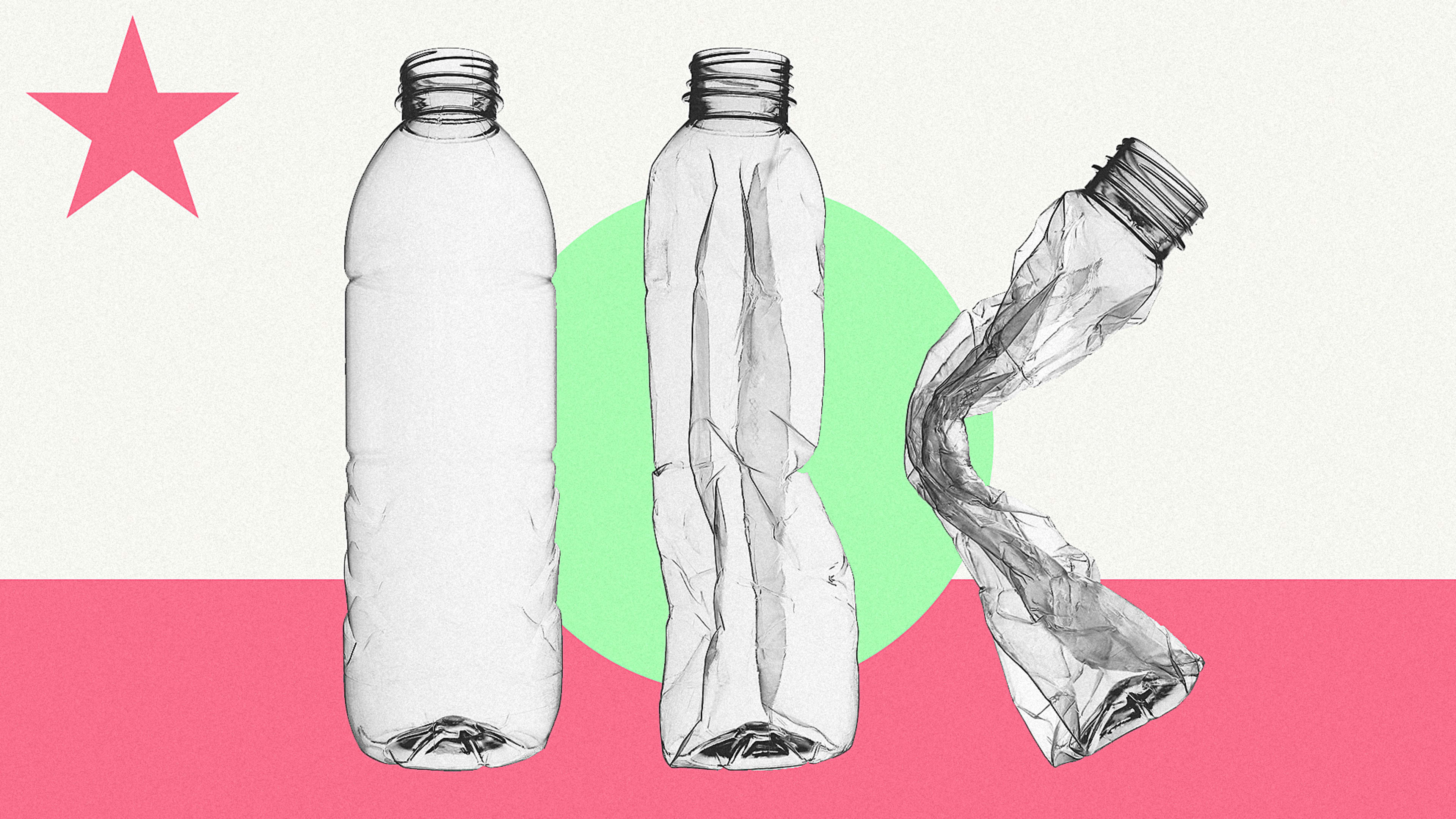Coca-Cola. Nestlé. Pepsi. Mars. P&G. These are some of the world’s most iconic brands. They are also some of the biggest plastic polluters on the planet. They sell goods in single-use plastic containers, which end up in our oceans and never biodegrade. Whether we buy their products or not, we’re all affected by their footprint. And in turn, a landmark lawsuit by the Plastic Pollution Coalition and Earth Island Institute has been filed in California against all of the aforementioned corporations and several other major food, beverage, and consumer product companies. The groups are suing for damages to repair the problem of plastic waste.
The case is important to watch, because it argues that plastic isn’t just a pollutant, but an actual design defect these companies are liable for producing. As the complaint outlines in clear detail: More than 90% of plastic packaging can’t be recycled, so it’s discarded as waste. The single-use packaging ends up in the oceans forever. The societal cost of that single-use plastic waste is far greater than any benefit to consumers. And these companies could be researching and implementing all sorts of alternatives.
“Plastic waste is a worldwide problem that demands thoughtful solutions,” says an American Beverage Association spokesperson, which represents Coca-Cola and PepsiCo, in response to the suit. “America’s beverage companies are already taking action to address the issue by reducing our use of new plastic, investing to increase the collection of our bottles so they can be remade into new bottles as intended, and collaborating with legislators and third-party experts to achieve meaningful policy resolutions.”
Andrea Gass, a former law clerk for the EPA and current Library Research Fellow at Arizona State University who specializes in reducing plastics use, walked us through the complaint in detail. As she explained, it’s unique in that, rather than arguing against plastics through established environmental law, the suit is claiming all sorts of other things about producing plastic: that the companies were negligent in producing a product that couldn’t actually be recycled (recycling standards are notoriously varied and confusing); that they failed to warn consumers about the dangers of plastics (like a cigarette label warns you about your health); and that they have even created a product that’s become a “public nuisance” by polluting California coasts.

Many of the suit’s claims will be tricky to argue. “If it’s Coca-Cola directly dumping bottles into the ocean, it’s easy to sue them under the Clean Water Act. You can figure out who dumped it into the ocean pretty easily,” says Gass. But she points out that there is so much plastic in the ocean, indirectly attributable to so many companies, that it’s difficult to pin down the responsibility of any one company (despite what research says). “Given that we don’t have any kind of direct dumping—this went through the stream of commerce—in some degree [courts] are going to blame the consumers for disposing of it improperly,” she says.
But one of the claims stands out to Gass as something that could be litigated successfully: The notion that plastic bottles and goods are a “design defect” by nature because they do more societal harm than good. And the main reason companies are using them at all is that they’re cheap to produce.
“This is sort of new territory,” says Gass. “What they’re claiming [is that] because we recognize plastic has this problematic tendency to break down into microplastics and it never goes away, that’s a product defect where the utility of the product is outweighed by the harm it causes to society, essentially, or the harm it poses to customers. I think that’s an increasingly valid argument because we do have a lot of alternatives to plastic now.”
This argument still faces the same liability problem: Was Coca-Cola or Pepsi really the source of all this plastic in the ocean? Plus companies could argue that it’s economically unfeasible to adopt new containers, or even that they might be less effective at thwarting contamination. “Because a lot of what plastic is for is to stop food from being contaminated—which they would be liable for,” says Gass. “That’s why we have so much stuff wrapped in plastic to begin with.”
In fairness, businesses are eagerly looking for alternative packaging solutions to single-use plastics. Nestlé, the largest food packaging company in the world, has committed to eliminating all single-use plastic and adopting 100% recycled and biodegradable packaging by 2025 (though the definition of recyclable is up for debate). Unilever and P&G are part of a coalition of brands pushing reusable packaging in an effort dubbed Loop.
Gass suggests that the suit, if successful, could force companies to invest even more than they already do in alternatives, with a greater sense of urgency. Win or lose, this case marks new ground: If you make a product packaged in single-use plastic, you just might be sued for it.
We reached out to Mars, P&G, and Nestlé for comment, but only heard back from Nestlé by press time. “We do not believe that lawsuits are an effective way to address the multi-faceted issue of plastic pollution,” the Nestlé spokesperson wrote in an email. “Such a universal challenge requires a well-orchestrated effort among the private sector, governments, NGOs and citizens to focus on making tangible changes in the ways we live and do business. Our vision is that none of our product packaging, including plastics, ends up in landfill nor in waterways. . .”
Recognize your brand’s excellence by applying to this year’s Brands That Matter Awards before the early-rate deadline, May 3.
